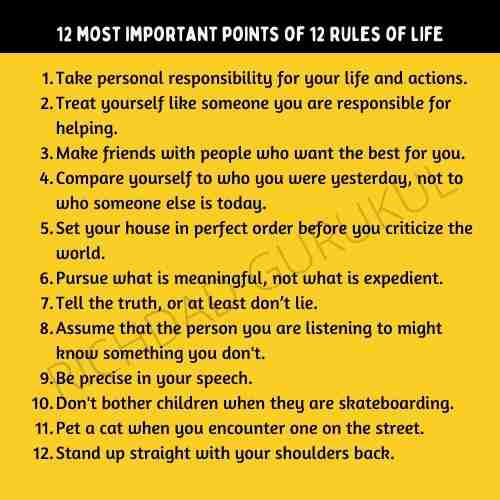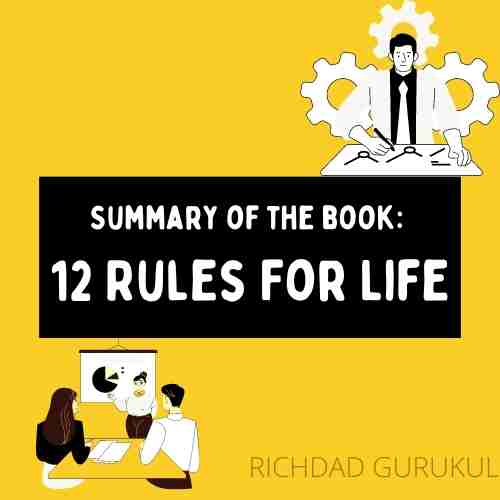12 Rules Of Life

The book “12 Rules for Life: An Antidote to Chaos” by Canadian psychologist Jordan Peterson presents a set of principles for living a meaningful and fulfilling life. Peterson draws on a range of sources, from psychology and neuroscience to philosophy and religion, to offer insights into how to navigate the complexities of modern life.
The 12 rules themselves cover a wide range of topics, from the importance of taking personal responsibility to the benefits of embracing tradition and ritual. Some of the key themes that run throughout the book include the need to confront the realities of suffering and pain, the importance of cultivating meaningful relationships and and the role of individual choice.
The first habit is to be proactive. This means taking responsibility for your own life and choices, rather than blaming external factors or circumstances. By focusing on what you can control, you can become more self-reliant and better able to achieve your goals.
The second habit is to begin with the end in mind. This means having a clear vision of what you want to achieve, and then working backwards to create a plan for how to get there. By starting with a clear goal, you can avoid getting sidetracked by distractions and stay focused on what truly matters.
The third habit is to put first things first. This means prioritizing your time and energy based on what is most important to you, rather than reacting to the demands of others or being driven by urgency. By setting clear priorities and boundaries, you can become more effective and achieve greater balance in your life.
The fourth habit is to think win-win. This means seeking mutually beneficial solutions in all your interactions, rather than trying to dominate or manipulate others. By cultivating an abundance mindset and focusing on creating value for others, you can build stronger relationships and achieve greater success.
The fifth habit is to seek first to understand, then to be understood. This means listening empathetically and seeking to understand others’ perspectives before trying to communicate your own. By demonstrating respect and empathy for others, you can build trust and foster more productive communication.
The sixth habit is to synergize. This means working collaboratively with others to create something greater than what could be achieved alone. By leveraging the strengths and talents of others, you can achieve greater results and find new solutions to complex problems.
The seventh habit is to sharpen the saw. This means continually investing in your own growth and development, both personally and professionally. By taking care of yourself and staying committed to lifelong learning, you can maintain your effectiveness over the long term.

One of the central ideas of the book is that meaning and purpose are not things that can be pursued directly, but must instead emerge from a process of personal growth and development.
Overall, “12 Rules for Life” offers a thought-provoking and challenging set of principles for living a fulfilling and purposeful life in a world that can often seem chaotic and overwhelming. Whether you agree with all of Peterson’s ideas or not, there is no denying the value of the questions he asks and the insights he offers.

